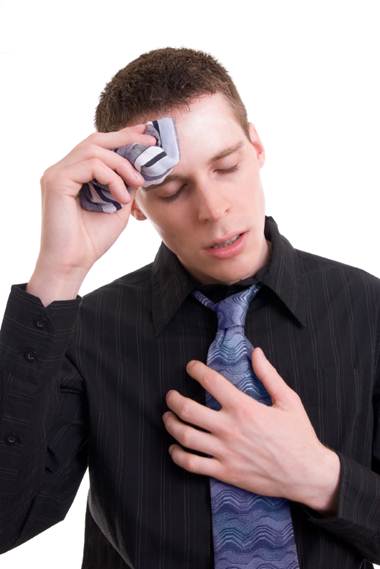Excessive sweating isn’t a mere
inconvenience, but a medical condition that can be treated
Some people sweat profusely even when it’s
not hot. And no, it’s not because they’re nervous. Abnormal and excessive
sweating is a condition known as hyperhidrosis and it can affect armpits, hands
or feet.

Excessive
sweating isn’t a mere inconvenience, but a medical condition that can be
treated
What causes hyperhidrosis?
The cause is difficult to trace and
sometimes it’s due to another medical condition. Some possible causes include:
·
Drugs and drug poisoning
·
Infections
·
Diabetes or hyperthyroidism
·
Anxiety disorders
·
Cancer
·
Menopause
·
Parkinson’s disease
·
Injury to the spinal cord
Hyperhidrosis is more common among those
who have an anxious temperament or are suffering from depression or severe
stress.
Signs and symptoms
Hyperhidrosis is hard to conceal since the
sweat is almost dripping from the palms and soles. Often, the wetness makes the
grip so slippery, that even everyday tasks such as writing, typing, or using
the phone become tedious.
The sweat is especially bad gor the feet as
the water stays in the closed footwear. This invites bacterial or fungal
infections that lead to itchy and foul-smelling feet.
How is it diagnosed?
Diagnosis constitutes detecting the cause
of hyperhidrosis since that is what paves the way for treatment. Pinpointing
the cause becomes easier for the doctor if the patient provides a detailed
history about the onset and progress of his symptoms.
It is even better if he maintains a sweat
diary, noting down the areas where he sweats the most and the time when the
symptoms worsen.
A doctor may order the following:
Starch-iodine test: an iodine solution is applied to the sweaty ares and left to dry.
After it dries, starch is spinkled that makes parts that are prone to excessive
sweating, turn dark blue.
Paper test:
Special absorbent paper is placed on the affected area. This paper is weighed
later to check the increase in weight of the paper, indicating the amount of
sweat absorbed.
Depending on other symptoms and suspected
underlying condition, your doctor may advise you some specific tasts such as a
thyroid function tests if hyperthyroidism is suspected.
Complications of hyperhidrosis
Excessive sweating, specially on the palms,
soles and under arms, may predispose a person to contact dermatitis, pompholyx
[eczema with blisters], fungal infections and bacterial infections like pitted
keratolysis [crater like pits on hands and feet].

Some
patients feel embarrassed to socialise and hence restrict social interaction
Apart from this, hyperhidrosis may cause
severe psychological disturbance, stress, anxiety and depression. Some patients
feel embarrassed to socialise and hence restrict social interaction.
What brings relief?
Antiperspirants: Products containing 10 –
20 per cent aluminium chloride or products with 2 per cent formaldehyde, 10 per
cent glutaraldehyde or 10 per cent tannic acid help. Avoid using aluminium
zirconium based products.
Also, refrain from excess use of
an-tiperspirants as it irritates the skin and can even damage clothes.
Medicines:
This includes medications specifically indicated for hyperhidrosis or those
meant to reduce anxiety.
Iontophoresis: In this procedure, the affected person’s hands or feet are placed
in water and a nild current is passed through the water. The intensity is then
increased slowly till the patient feels a mild tingling sensation. A typical
session lasts for 10 – 20 minutes and a person may require many sessions.
Botox: This
involves injecting small doses of Botox into the affected area to block the
nerves that stimulate sweating. However, the effects last only six months.
Side-effects include pain on the site of injection and flu-like symptoms.
Sympathectomy: This treatment is suggested as a last resort for severe cases that
are resistan to other foems of treament. It involves removing part of the nerves
in the affected area.
Adjuvant treatment such as behaviour
therapy and biofeedback may provide some benefit.